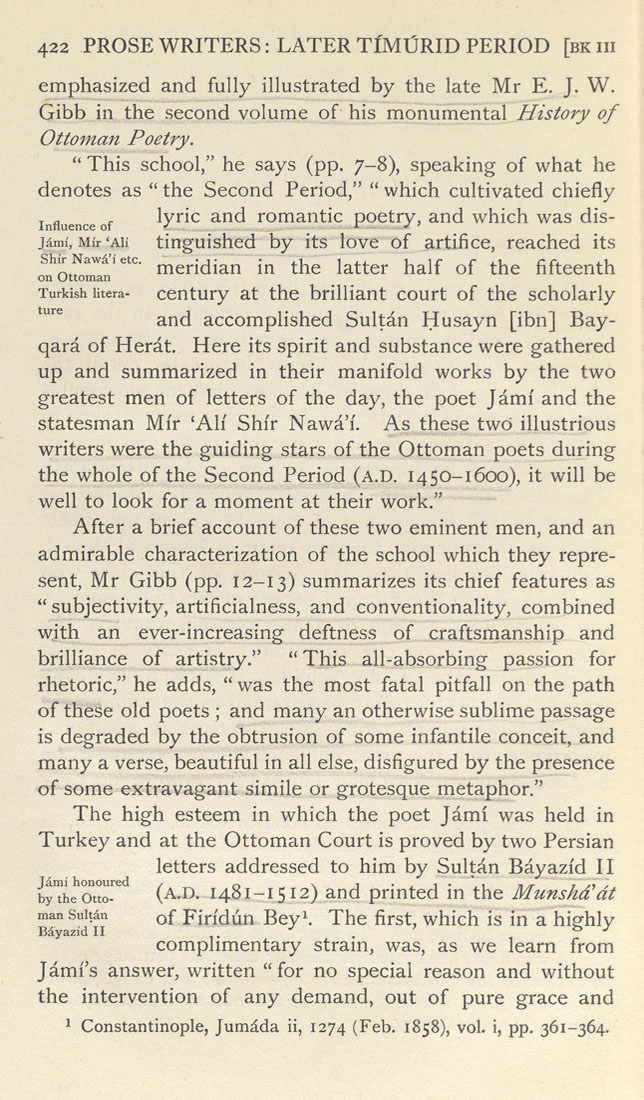422 PROSE WRITERS: LATER TImCRID PERIOD [bk hi
emphasized and fully illustrated by the late Mr E. J. W.
Gibb in the second volume of his rnonumental History of
Ottoman Poetry.
" This school," he says (pp. 7-8), speaking of what he
denotes as " the Second Period," " which cultivated chiefly
Influence of ly^c aud romantic poetry, and which was dis-
jami, Mir'Aii tinguishcd by its love of artifice, reached its
"^ f^^^^^"^' meridian in the latter half of the fifteenth
on Ottoman
Turkish litera- ccntury at the brilliant court of the scholarly
and accomplished Sultan Husayn [ibn] Bay¬
qara of Herat. Here its spirit and substance were gathered
up and summarized in their manifold works by the two
greatest men of letters of the day, the poet Jami and the
statesman Mir 'All Shir Nawa'i. As these two illustrious
writers were the guiding stars of the Ottoman poets during
the whole of the Second Period (a.d. 1450-1600), it will be
well to look for a moment at their work."
After a brief account of these two eminent men, and an
admirable characterization of the school which they repre¬
sent, Mr Gibb (pp. 12-13) summarizes its chief features as
" subjectivity, artificialness, and conventionality, combined
with an ever-increasing deftness of craftsmanship and
brilliance of artistry." " This all-absorbing passion for
rhetoric," he adds, "was the most fatal pitfall on the path
of these old poets ; and many an otherwise sublime passage
is degraded by the obtrusion of some infantile conceit, and
many a verse, beautiful in all else, disfigured by the presence
of some extravagant simile or grotesque metaphor."
The high esteem in which the poet Jami was held in
Turkey and at the Ottoman Court is proved by two Persian
letters addressed to him by Sultan Bayazid II
by^heOtto-^ (a.d. 1481-1512) and printed in the Munshddt
man Sultan Qf Ffridun Bey\ The first, which is in a higrhlv
Bayazid II -^ ' ^ ^
complimentary strain, was, as we learn from
Jami's answer, written " for no special reason and without
the intervention of any demand, out of pure grace and
1 Constantinople, JumMa ii, 1274 (Feb. 1858), vol. i, pp. 361-364.
|








